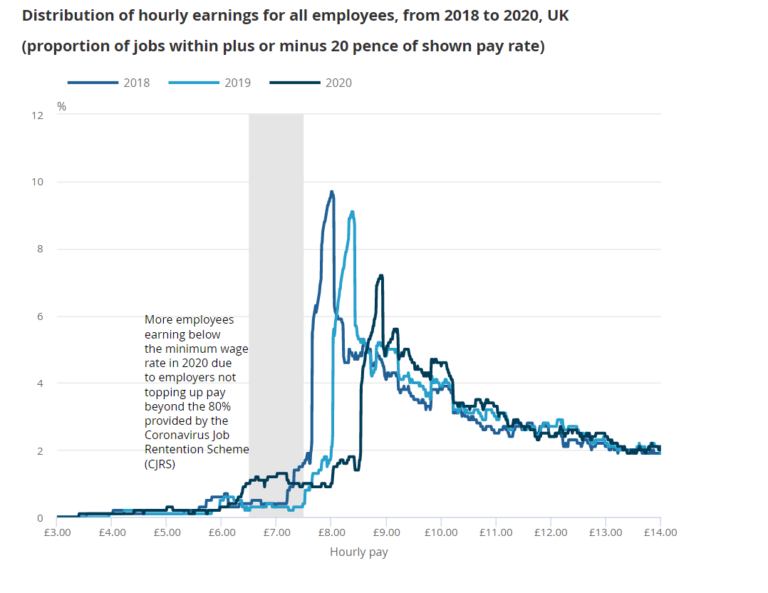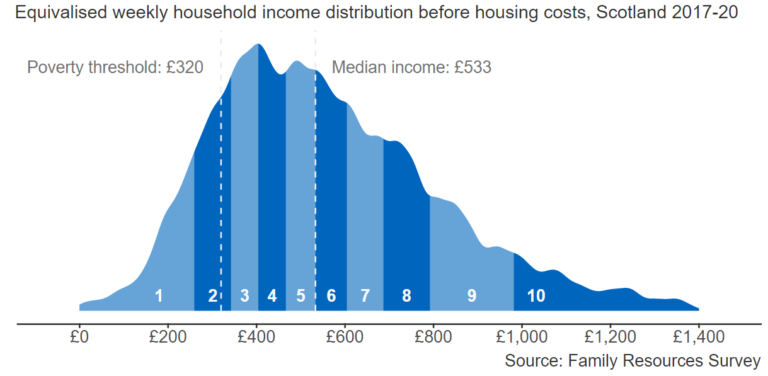In last week’s Programme for Government the Scottish Government set out its vision for delivering improved economic outcomes in Scotland. Notably, there is a focus on creating a wellbeing economy, delivering a just transition to a net zero economy and addressing child poverty. It is important to recognise the relationship that each of these core priorities has with fair work. The Convention is firmly of the view that fair work is essential to shaping our collective response to the longstanding challenges of inequality in our society; to the ongoing challenges posed by demographic change, technological change and the climate crisis; and to addressing the external ‘shocks’ of Brexit and the COVID-19 pandemic.
The ongoing public health challenges and the economic and social impact of COVID-19 exposed much of the unfairness at the heart of our economy and the pressing need for fair work for all. The impact of the pandemic also increases the challenges we face, with many sectors facing multiple ongoing and new pressures. In the wake of such an unprecedented shock, progress towards achieving fair work is essential but not guaranteed.
There is no better time than climate week to reflect on the scale of the environmental challenges we face. Transiting to a net zero economy means changing fundamentally the type of economy that exists in Scotland, and a just transition is only truly ‘just’ if it is rooted in fair work principles.
A whole systems approach
Scotland’s ambitions are undoubtedly the right ones but too often discussion around the well-being economy, child poverty, fair work or tackling climate change sit in isolation from each other. But these can and should be mutually-reinforcing agendas. It will be essential to use every lever at the Government’s disposal to embed, incentivise and facilitate fundamental change across these key priorities.
Over the next ten years the Scottish economy must change fundamentally if it is to be the dynamic, innovative, inclusive and sustainable economy required. The transition to net zero provides a catalyst for opening conversations with employers around the business models that they deploy and how these impact on sustainability. Fair work must be at the heart of these conversations so that the transition to net zero leads to a higher value, more innovative economy.
There are limits to what high level strategies focused on Government or agency intervention can achieve alone. It is therefore important that any zero carbon strategy has a clear focus on inspiring change where economic activity takes place, at a workplace level. Our economy needs many more highly ambitious business, with business models that have fair work and the transition to net zero as fundamental principles. The primary purpose of public sector support to business, particularly small business should be to build their capacity and capability to adapt workplace practices that are fair, inclusive and sustainable, as the foundation for the innovation and investment necessary to support improved productivity and competitiveness and eliminate in-work poverty.
The following example is offered as an illustration of this.
A persistent and longstanding feature of our labour market is its polarisation and action by successive Governments across the UK has made little tangible progress on the issue. Stated simply our labour market, or to be more precise our employers, offer too many jobs that are low paid and too few opportunities for low paid workers to progress to higher paid employment. Not only is this economically inefficient, it entrenches social and economic inequality that for too many of our citizens lasts a lifetime and the impact of which creates demands on a wide range of our public services.
Figure 1 shows pay distribution in the economy. There is a large concentration of jobs paid within 20 pence of the National Minimum Wage, and while this concentration was slightly less in 2020 this was primarily a consequence of the job retention scheme and a greater number of people being paid below the Minimum Wage. Figure 2 also highlights that large numbers of households in Scotland have income that is close to the poverty threshold.


This is a consequence of the nature, quality and content of the jobs that are offered by employers, which in turn is a consequence of the business models and related employment practices they deploy. If this situation is to be reversed and the economic and social benefits of doing so realised, there requires to be a far greater emphasis placed by government and its agencies on the measures they can take to support and compel employers to change their behaviour.
Change is fundamental to delivering a just transition to a net zero carbon economy and a change built on fair work principles will support Scotland’s wider economic and social aims. Ultimately fair work and a just transition to a net zero economy should reinforce each other and should allow us to improve our economy for the benefit of everyone.
Going forward, The Fair Work Convention want to make sure that Scottish Government’s commitment to putting sustainability, wellbeing and fair work at the heart of our economic transformation becomes a reality. We look forward to continued consultation on this as we work towards Scotland becoming a fair work nation by 2025.
